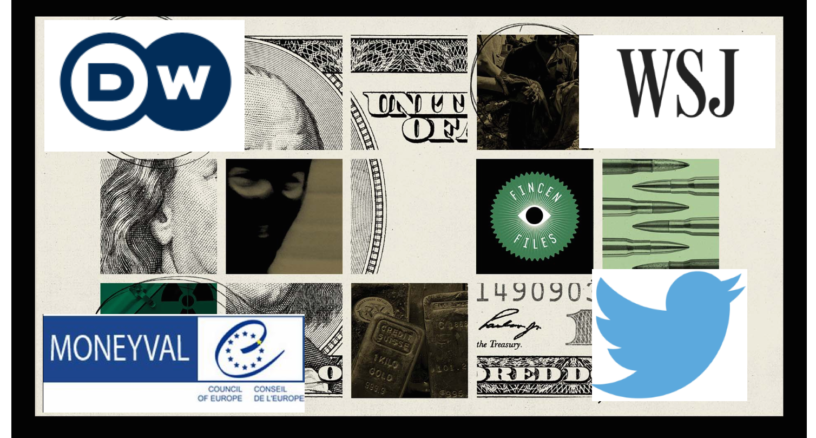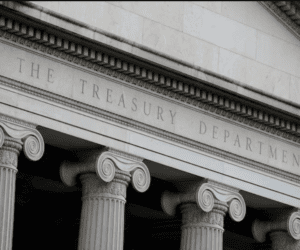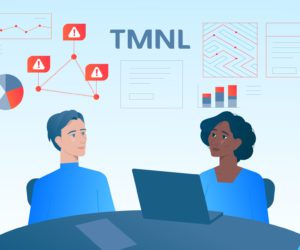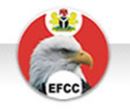By Elizabeth Hearst
Europe flexed its muscle in the ongoing row over the FinCEN Leaks Tuesday night by calling on all countries to sign up to the Warsaw Convention on money laundering.
In a strongly worded statement the chair of MONEYVAL and the President of CETS 198 – under the auspices of the European Council – both called on all Council members and non-EU countries to close gaps on the reporting of suspicious transactions.
Ms Elżbieta Franków-Jaśkiewicz, chair of the Committee of Experts on the Evaluation of Anti-Money Laundering Measures and the Financing of Terrorism (MONEYVAL) and the President of the Conference of the Parties to the Council of Europe Convention on Laundering, Search, Seizure and Confiscation of the Proceeds from Crime and on the Financing of Terrorism (CETS 198 ) Dr. Ioannis Androulakis issued a joint statement on the FinCEN Files.
They said the leaks showed up weaknesses in the global anti-money laundering (AML) efforts, which allow suspicious transactions to move through the financial system without hindrance. Both said European countries have long recognised this vulnerability and have put in place additional enforcement mechanisms, which have not yet been implemented in other parts of the world.
This refers to the Council of Europe Convention on Laundering, Search, Seizure and Confiscation of the Proceeds from Crime and on the Financing of Terrorism – CETS 198 (the “Warsaw” Convention) which they say “is the only international treaty which gives national authorities the power to halt suspicious transactions at the earliest stage to prevent their movement through the financial system.”
On top of this specialised Financial Intelligence Units (FIUs) of European Member States are required to halt such transactions whenever requested by a foreign partner FIU.
They issued the following statement calling on European Council members who have not already done so and international partners to strengthen the international response to global money laundering:
‘we call on Council of Europe member states to redouble their efforts to sign, ratify and effectively implement the “Warsaw” Convention and its respective provisions on suspending suspicious transactions;
‘we invite non-European countries to consider joining this Convention and commit to its full and effective implementation;
‘we recommend the global AML standard-setter –the Financial Action Task Force (FATF) -to expand its 40 Recommendations and include requirements for suspension of suspicious transactions.’
Separately, pressure was also growing on executives at home in Germany for Deutsche Bank after publication of the FinCEN Leaks Sunday night, which have been dominating headlines across the world for the past two days. The bank is accused of allowing more $1.3TRN in suspicious transactions to take place, in the face of red flags raised by the bank’s own Compliance teams.
Some of the reaction is here:
- According to DW, the co-chairman of Germany’s Social Democrats, Norbert Walter-Borjans demanded more stringent penalties for those involved and said: “We need a corporate criminal law that not only calls individual employees to account, but perpetrator banks as a whole to account in the event of legal violations – right up to and including the withdrawal of licences.”
- Taking to Twitter, Germany’s Green party MEP Sven Giegold said the FinCEN files “must be a wake-up call for a strengthening of joint money laundering supervision with a European FIU”.
- Across the Atlantic, the mood is largely the same: more needs to be done to prevent this happening again. Speaking to the Wall Street Journal, Elizabeth Rosenberg, former Treasury sanctions official said: “The FinCEN files illustrate the alarming truth that an enormous amount of illicit money is sloshing around our financial system, and that US banks play host and facilitator to rogues and criminals that represent some of America’s most insidious national security threats”.
She added: “But the devastating problem is not that bad people move dirty money – a feature of every system is currency and exchange in history”. She maintains that one of the biggest problems the US faces is that it doesn’t have appropriate transparency laws that “ban anonymous companies” and requires the identification of the company’s true owner.
- Clark Gascoigne, interim executive director at the FACT Coalition told the WSJ that “it’s time to overhaul our anti-money laundering system and prioritise the fight against illicit finance… That begins by enacting bipartisan legislation to end the incorporation of anonymous shell companies in the National Defense Authorization Act”.
- A statement from the The Chair of MONEYVAL, Ms Elżbieta Franków-Jaśkiewicz and The President of the Council of Europe Convention on Laundering, Search, Seizure and Confiscation of the Proceeds from Crime and on the Financing of Terrorism, Dr. Ioannis Androulakis said: “Recent media revelations about materials branded as the “FinCEN Files” point to certain weaknesses in the global anti-money laundering (AML) efforts”.
The statement added: “European countries have long recognised this vulnerability and elaborated additional enforcement mechanisms, which have not yet been implemented in other parts of the world”.
The statement calls “on the Council of Europe member states to redouble their efforts to sign, ratify and effectively implement the “Warsaw” Convention and its respective provisions on suspending suspicious transactions” and added that the group invites “non-European countries to consider joining this Convention and commit to its full and effective implementation”, and said it “recommends the global AML standard-setter – the Financial Action Task Force (FATF) – to expand its 40 recommendations and include requirements for suspension of suspicious transactions.”
- However, some experts in the AML sector argue the leaks were not worth it.
- Sarah Beth Felix, owner of Palmera Consulting took to Linkedin and said: “Was the leak worth it? My opinion… not at all” and detailed how these “leaks destroy any respect that the AMLOs have fought for over the last 15 years”. She added “As a result, we will have not-previously-engaged C-suite execs poking around in the day-to-day SAR operations of the AML team… and not in a good way. “
- Lauren Kohr, Chief Risk Officer at Old Dominion Bank added her support on LinkedIn, saying: “Banks are NOT the ones responsible for prosecuting the crime, they are responsible for reporting the activity to those with authority to prosecute”. She said that “leaking information from nearly eight years ago when that is not how a large majority of those Banks operate is simply spreading a false narrative that impacts not only our national security but the hundreds of thousands of passionately dedicated AML and LE professionals devoted to the true mission”.
Last night, German MEP and EPP spokesperson in the European Parliament Committee on Economic and Monetary Affairs Markus Ferber re-emphasised the need for EU-wide legislation and supervisory body to help fight against money laundering, and added that the publication of these files how “how vulnerable the international financial system is for money laundering”.
Previous reaction (Monday) – with reporting from Dan Byrne
Reactions intensified Monday to the news that some of the world’s biggest banks allegedly knew of millions being laundered through their channels every month and did little to stop it.
Names such as Barclays, JP Morgan Chase, HSBC, Standard Chartered and Deutsche have been linked to the FinCEN files – a hoard of financial records leaked from the US Department of the Treasury to Buzzfeed News in 2019 – which show the path and extent of dirty money flowing across the world.
Here are some of the reactions:
- A European Commission spokesperson said that the issue of tackling money laundering is not new and touted the EU’s AML regulations as the “toughest in the world.”
- The spokesperson also said that while the Commission has tracked and investigated problem for some time, a worldwide effort is ultimately required, maintaining:”It’s all about ensuring the effectiveness of AML standards across the globe.”
Commission Statement in full in response to FinCEN Leaks: “The complex issue of tackling the flow of dirty money is not new. The Commission has tracked this problem closely and we have conducted our own investigations [AML Package July 2019].
“Within the EU, we have been ramping up our anti money laundering rules, which are now the toughest in the world. We have also been working on stepping up supervision at EU level and enforcement and implementation of existing rules.
“Tackling this problem is a global challenge. It is all about ensuring the effectiveness of AML standards across the globe.
“In May, the Commission adopted a comprehensive Action Plan to tackle money laundering and terrorist financing. It focuses on better enforcement of legislation, better supervision, better coordination among Financial Intelligence Units, and a stronger role in setting international standards.
“We understand the US is also working on a more effective AML framework. We are committed to working with the US and all our global partners on this issue.“
- MEP and EPP Spokesperson in the European Parliament Committee on Economic and Monetary Affairs Markus Ferber (pictured above) tweeted ‘the files show quite clearly how vulnerable the international financial system is for money laundering. The EU is not an exception.’
- He re-emphasised the need for an EU-wide set of rules and a supervisory body to enforce them, without which, he claimed, the fight against money laundering would remain a ‘patchwork.’
- The European S&D (Socialists & Democrats) Group described the revelations as ‘shocking,’ and stressed there was an urgent need to better understand the supervision of money-laundering.
National news outlets were zeroing in on banks with a local presence as the international scope of the revelations became apparent:
- The London Times ran with coverage of HSBC and their role in allowing $80 million to be laundered by international criminals, despite receiving warnings from foreign intelligence services that it was happening.
- The New York Times highlighted the connections of several banks to money-laundering scandals related to high-profile US national security concerns.
The NYT noted Standard Chartered’s alleged involvement in moving funds for a company with reported ties to the Taliban, and the role of several banks in moving $150 million for companies with links to the North Korean government.
- In Germany, Die Welt narrowed in on Deutsche Bank’s role in the scandal, as well as the increased number of ‘suspicious transaction reports’ that the German Financial Intelligence Unit has received in the past year.
German Financial Secrecy Director in the Tax Justice Network Markus Meinzer told Die Welt that the German financial regulator BaFin ‘fails all too often and has to be fundamentally rethought and rebuilt.’
On the stock markets, bank share prices took a tumble across the board Monday morning. Standard Chartered fell by over 5% by 10:30 GMT. HSBC and Deutsche had fallen around 6% by the same time, and Barclays slumped over 6.5%.
Deutsche Bank was among the first to issue a statement following thew release of the files on Sunday evening GMT.
They advised that the bank has invested billions of dollars to support authorities more effectively in fighting financial crime. ‘Naturally, this leads to increased detection levels,’ they said.
They also noted that the SARs – which the FinCEN files rely heavily on – are pro-actively identified and submitted by banks to governments in accordance with the law.
‘SARs are alerts of potential issues, not proven facts,’ they added.
Share this on:
Follow us on:








